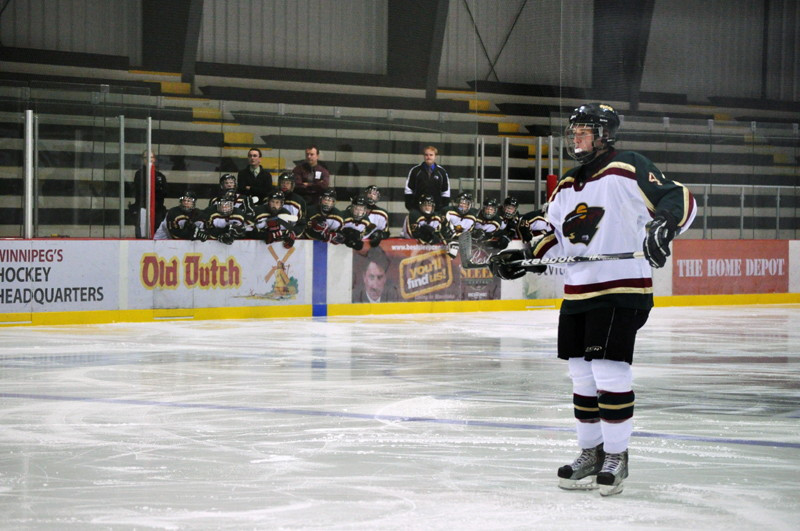Doing it for the team
Psychologist, hockey player and coach distinguish between hazing and team building techniques
In light of the Neepawa Natives hazing incident, the psychological effects of victimizing and team building are being called into question.
News of the hazing slowly crept out in the media last month, revealing players on the team were made to walk around the locker room with heavy objects tied to their genitals. The Manitoba Junior Hockey League announced a $5,000 fine and multiple suspensions.
Wendy Josephson, a psychologist who has studied aggressive and violent youth behavior, believes hazing, though often at great detriment, promotes team building.
“The reason most social psychologists would give you is that hazing promotes cohesiveness in a group,” she said. “When you make huge sacrifices for a group, you often feel more committed to them.”
However, there are better methods for achieving group cohesion, Josephson added.
“You don’t have to be violent and aggressive. You can do something that is actually pro-social,” she said. “A colleague of mine used to work in a mine up north, where he had to buy the first round of drinks after the first pay day.”
Josephson holds team-building exercises must involve the entire team, not just newcomers, to be effective.
“Group exercises solidify a team, proving that the whole group can meet strong challenges together.”
For those who have been psychologically harmed by hazing, restoring a positive relationship with their aggressors can be beneficial, she said.
“If you could get some recognition from them, that their actions were inappropriate, this can be quite helpful,” she said. “You have to restore the relationship with the ones who have been committing the bullying.”
Neil Exell, a University of Winnipeg student and hockey player of 17 years, believes team building happens naturally and requires no ceremony.
“The need for naked dancing comes from a distorted mob mentality take on macho culture,” he said. “I don’t know what it is supposed to accomplish.”
Exell finds hockey hazing to be a rather bizarre phenomenon.
“I think it’s interesting that hockey culture, which is very homophobic, is always being exposed as this weird penis-enthused culture,” he said. “It’s like everyone is excited about penises.”
“ If anything, players are going to trust each other less after hazing.
Mike Raimbault, coach, Wesmen basketball
Mike Raimbault, Wesmen basketball coach, believes hazing and team building do not complement each other. Raimbault instead sees hazing as detrimental to team building.
“If anything, players are going to trust each other less after hazing,” he said. “I don’t see how it helps build a team environment, it’s just ridiculous.
“I don’t think there is really any place for it in team building or in any sort of team function,” he said.
Like Exell, Raimbault regards team building as a natural process. It is intense situations faced by entire teams, not demeaning initiations, which strengthen team dynamics, adds Raimbault.
“In training, you put the teams through intense adverse situations where they have to pull together to create a common goal,” he said. “The more experience they have together the stronger the team dynamic is.”
Raimbault has never been hazed.
“As a freshmen in university, I had to carry the uniform bag once,” he said. “To me, that’s not really hazing.”
Exell, as well, has never been subjected to an aggressive initiation.
“I have never been violently victimized,” he said. “One time they wanted me to go to the bar with them, but that’s pretty much it.”
Published in Volume 66, Number 11 of The Uniter (November 9, 2011)








